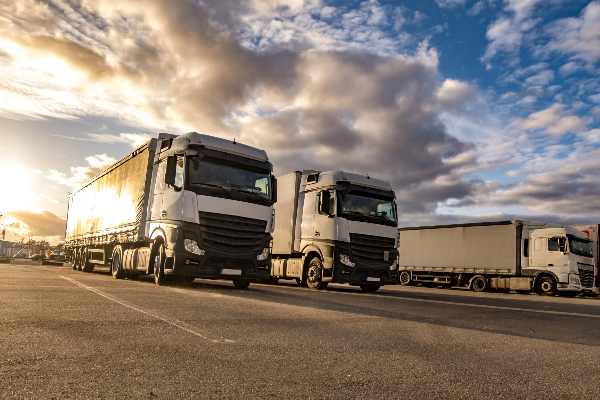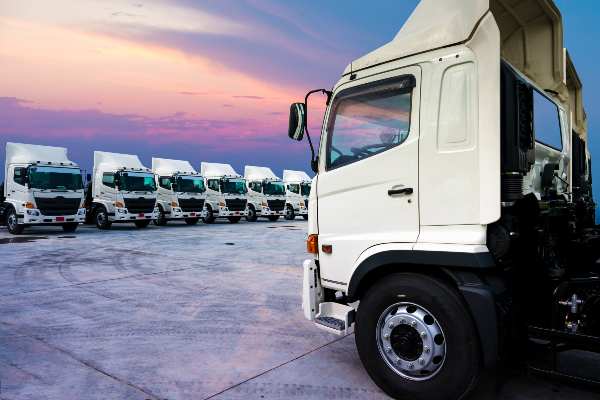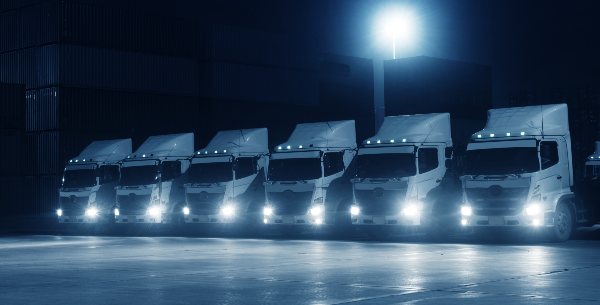It is a known fact that traffic accidents either involving passenger vehicles, semi-trucks, or motorcycles lead to property damage, injuries, and death. These ultimately result in financial losses for the victim and the fault driver. However, it is more of a loss for the responsible party who pays financial compensation to the crash victim.
In commercial vehicle collisions, things are slightly different as the negligent driver may not be the one to pay damages. This is because several factors outside the driver's control might have caused the accident. Thus, third-party liability comes into play to exempt the driver from fault.
As simple as this appears, victims of truck accidents do not often know who to sue for compensation. The common question clients always ask is who pays for commercial vehicle accidents in Colorado.? Our personal injury lawyers at Firouzbakht Law Firm will attempt to answer this. We can also represent you during insurance claims and personal injury lawsuits..

Under Colorado law, a commercial vehicle (motor carrier) is a vehicle used in commerce weighing at least 16,001 pounds. It must self-propel, be towable, and be designed to transport six or more passengers. The definition excludes school buses and certain agricultural vehicles. It includes vehicles used for the commercial transportation of other motor vehicles or hazardous materials transportation.
Automobiles that qualify as a commercial motor vehicle in Colorado include:
Pickup trucks do not qualify because they weigh less than 16,000 pounds. A standard pickup weighs about 6,000 pounds. Also, most trucks are company vehicles, and truck drivers are their employees or independent contractors.
In 2019, a total of 5,005 people died in large-truck crashes in the United States. The number of deaths has increased 36% since 2010 (3,686 deaths). The majority of deaths in large-truck crashes are occupants of other vehicles (71%), followed by truck occupants (18%), and non-occupants, primarily pedestrians and bicyclists (11%).
In 2018, there were 89 fatal crashes involving large trucks, representing 9.9% of all the fatalities in the state that year. With such high numbers, the question becomes, what causes commercial vehicle accidents?
Other factors that could cause truck accidents are:
Truck accidents, whether a head-on collision, rear-end crash, or broad-side impact, causes severe and catastrophic injuries. Some of these severe injuries include:
Victims who suffer any of the above are entitled to compensation for injuries. This compensation often covers economic damages and non-economic damages. It covers things like:
In some cases, where the driver failed to maintain the required duty of care, the court might award exemplary damages. The latter is also known as punitive damages. Courts award them for outrageous conduct and to deter erring drivers from such negligent conduct in the future. Contact a Firouzbakht Law Firm accident attorney to find more about this compensation type.

In any accident lawsuit or accident claim against the fault party's insurance company, it is crucial to know the proper parties. This is because if you commence legal action against the wrong fault party, your claim will fail. For this reason, our experienced truck accident attorneys have put together who pays for a commercial vehicle crash.
Even if most truck drivers work for a trucking company, they can still be the liable party in a collision. A fault driver who behaved negligently will pay compensation to the victim. Furthermore, a trucker who carries out personal activities during business hours will pay for damages if they get into an accident. They will pay from their auto insurance policy. If they don't have one, they might have to pay for damages out of pocket.
A trucking company is responsible for its drivers and the vehicle they put on the road. It means that they are accountable for hiring and training their drivers. In this vein, trucking companies must check out the driving record of those they hire and if they have had run-ins with law enforcement for traffic violations.
Also, employers in the trucking industry must ensure their drivers do not go beyond the business hours stipulated by the Federal Motor Carrier Safety Administration. Furthermore, a trucking company must routinely maintain and inspect their vehicles.
If they fail to do all these and a crash happens, they are the liable party. Trucking companies pay compensation from their commercial auto insurance. Under Colorado law, trucking companies must carry general liability insurance. So, paying insurance settlement is not difficult as long as they bear the blame.
Although Colorado law mandates truck drivers to ensure their cargo is properly secured, it does not free the loader of liabilities.. Cargo loaders who work as contractors to ship goods for other companies will be held liable if spillage causes a collision. In such an instance, both the driver and the loader will share the liability.
If a component of the truck, like the brake, causes an accident, the manufacturer or part maker may be liable. Problems with the coupling or steering wheel could be a defective problem from the start. In such an instance, the manufacturer or part maker will compensate the victim.
Suppose roadway hazards like broken pavement or soft shoulder cause or contribute to an accident. The local or state government responsible for that stretch of the highway may be liable. If a contractor failed to set up a "work zone notice," they can be liable for the occurrence.
It's not every commercial truck accident that is the driver's fault or any of the groups mentioned above. Sometimes, a passenger vehicle driver can be the one at fault for the accident. An example is when the driver follows too closely or enters the truck's no-zone area.
Thus, when a person behaves negligently on the road, they will be the fault party in the accident. In such an instance, if the truck driver suffers injuries or property damage, you will compensate them using your vehicle insurance policy.
Another instance when you pay for a commercial truck accident in Colorado is when the fault party does not have liability insurance. Suppose the truck driver is solely responsible for the accident and has neither auto insurance coverage nor collision coverage.. You will have to pay for your losses yourself.
If you have uninsured motorist coverage, it will cover your losses and repair. But if you don't, you'll have to pay for them from your pocket. The third instance is where the fault party does not have enough coverage.
Here, you will use underinsured motorist coverage to pay your bills if you have one. If you have health insurance, it would be wise to use it to cover medical bills. In any of these scenarios, you would have to file a personal injury lawsuit to get back the amount spent.

If you are going up against commercial truck companies in an accident claim, you need legal representation. At Firouzbakht Law Firm, our personal injury lawyers have the experience and expertise needed to win your case. We will get you the compensation you deserve and ensure you don't get forced to accept an unfavorable settlement.
We work on a contingency fee basis and will demand no upfront payment. Contact us today to schedule a free consultation on your case.